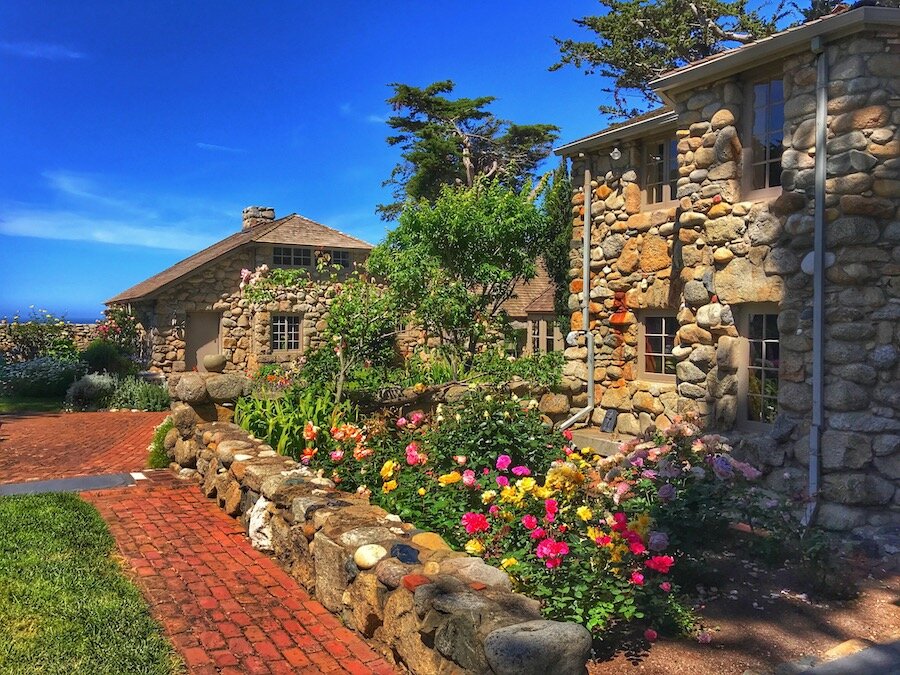Elliot Ruchowitz-Roberts, President, Tor House Foundation
The Tor House gardens have been spectacular this year. As I write this, looking out over those gardens from the second story of the East Wing, a covey of quail darts along the brick patio, adults and chicks so numerous and moving so quickly that I can’t count them. They disappear into the sweet alyssum, geranium, stasis, rose campion, that section of garden close to the graves of the house-dogs, True Winnie Darling and Dear Haig.
As if on cue, a hawk—a red-tail I would guess—glides quickly across my view, appearing from behind Hawk Tower and disappearing behind Tor House.
Even without the people that normally animate Tor House—the visitors from as nearby as down the street in Carmel to as far away as Brunswick, Maine, Holmestrand, Norway and Beijing, China; the tour docents revealing the wonders of Tor House to these visitors; the flower, music, archival, bookstore, and special occasion docents—even without this flow of people, Tor House and Hawk Tower are filled with life.
Not just life from the profusion of flowers and birds. When I do my solitary rounds of the property, checking to make certain all is in order, I never feel alone. There is something more, something that gives Tor House the distinctive quality that almost everyone who visits experiences.
I recently came upon On the Memory of Stone: A Tor House Legacy by poet Sherod Santos. The text of a talk Santos gave at the 1994 Fall Festival, the chapbook was from the collection of Marina Romani, a tour docent for many years and a dear friend, who died earlier this year. Her son donated her library to Tor House, and it was while looking through the box of Jeffers-related books that I found the little volume.
In On the Memory of Stone, Santos talks “about the experience of living for several years, from high school on, in close proximity to the Jeffers house,” as well as “the influence that Jeffers’ lingering presence exerted on my decision to become a poet.” But he also talks about stone, and what he discovers about its nature.
If I’m not making too much of this, it might be said that in Jeffers’
cosmology a stone is infused with the abiding presences of the past,
the present, and the future. And the person who bends to pick one
up draws that stone out of the river of time, attaching to it some
other memory—like the warm spring evening when Robin and Una,
on a walk around the tower in Galway that had once belonged to
Yeats, picked up a small rock from beside its walls. Time, Jeffers
knew, is written in stone, and taking that rock home…proved a way
of adding time to time, memory to memory, like water poured into
water: the geologic time of the stone itself; the historical time of
the tower; the personal time of Robin and Una’s walk together in
the presence of a poet whom both of them loved. And then, of course,
we too, visitors to Tor House, all add our own dimension of time
when we come to touch, mindfully or not, that small stone fragment
on the rain-washed paving near the West Wing of the Jeffers house.
“…it seems to me,” Santos continues, “that one might rightly consider the Jeffers house a sacred place,”
For what is our definition of a sacred place, except some location inhabited
by living presences, some location where people feel summoned back to a
clear coherence between time, and space, and some larger collective: for
Jeffers, the combined imagination of nature and humankind alike.
Every time I come to Tor House, I feel the sacredness of this place. As I walk through the deserted gardens and the empty rooms, I sense the “living presences,” whether in the histories of the stones—imagine the pudding stones, taken from Una’s family farm in Mason, Michigan, embedded in the east wall of Tor House, two billion years old!; or in the poetry—“sometimes harder than granite”—that lives everywhere on site; or in the people whose spirits populate this place: those of “the brown people who…/Built fires…and nestled” by Thuban, a cornerstone of the house; Jeffers’, “a dark one, deep in the granite;” Marina’s, a light one, at the top of Hawk Tower reading one last poem to her tour group under open sky.
“The living presences” of Tor House continually summon us back to this sacred place at continent’s end. In this time of sheltering in place, best to learn “the extraordinary patience of things.” We will return, one day, like Una, for whom,
Only the home-coming
To our loved rock over the gray and ageless Pacific
Makes her such joy.

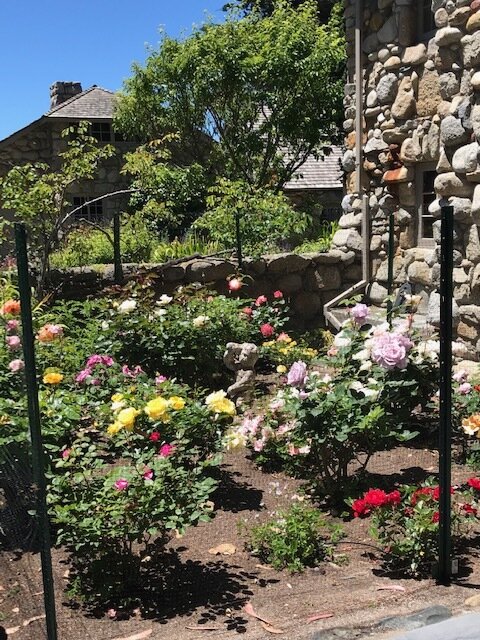
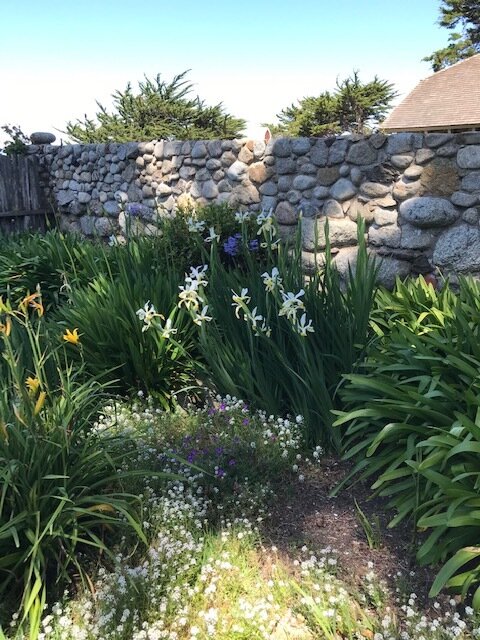
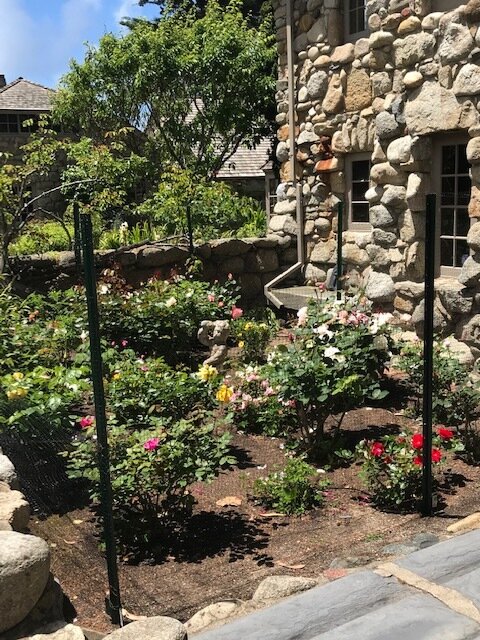
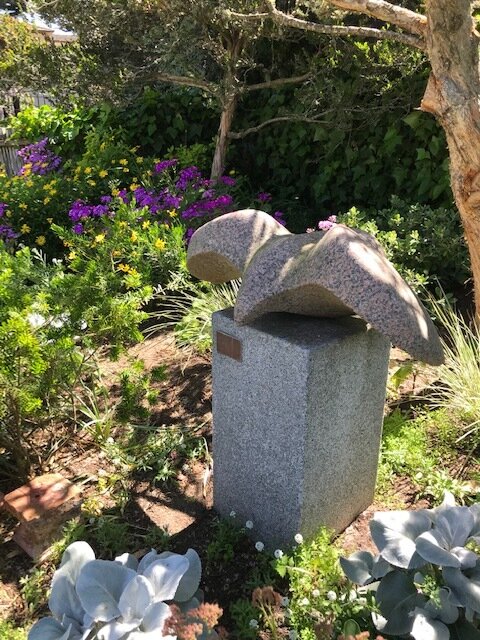
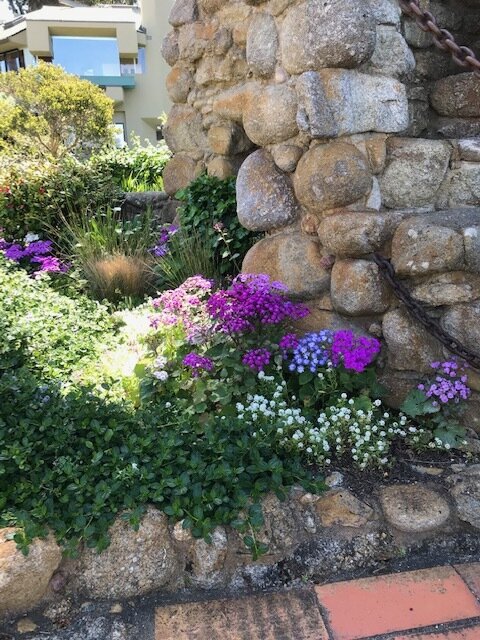
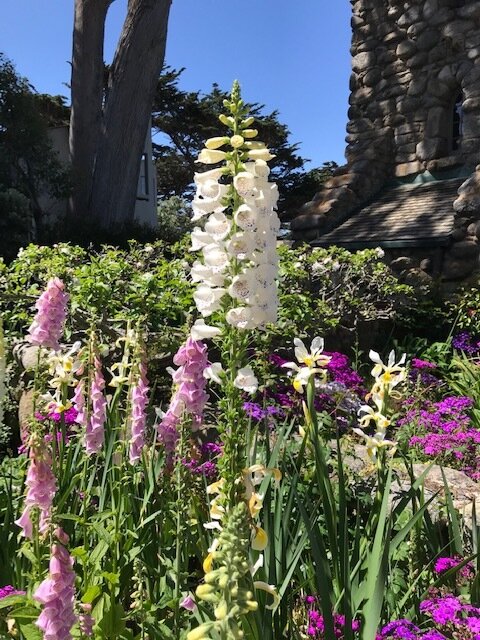
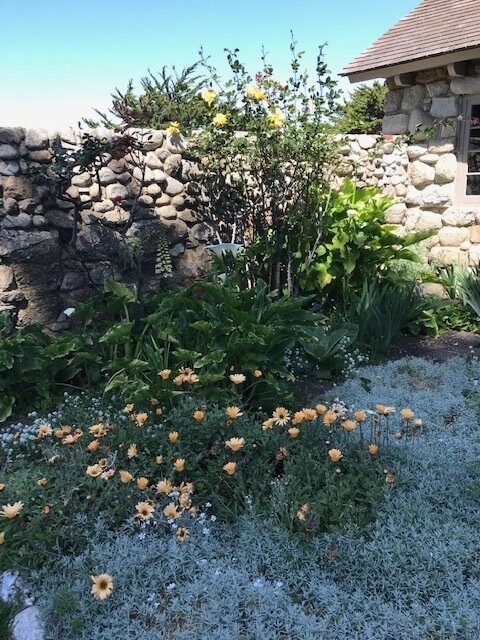

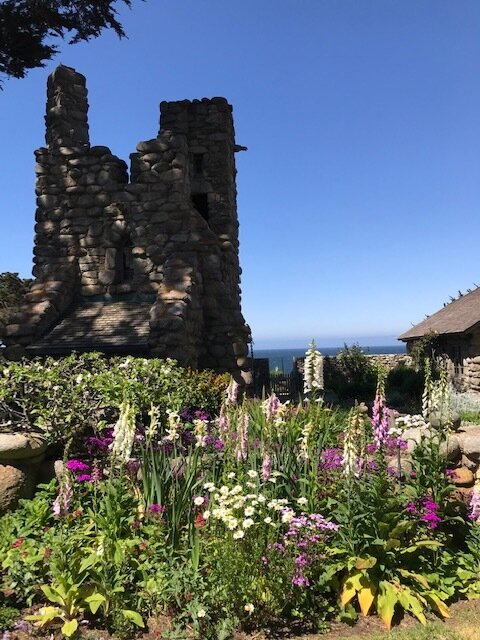
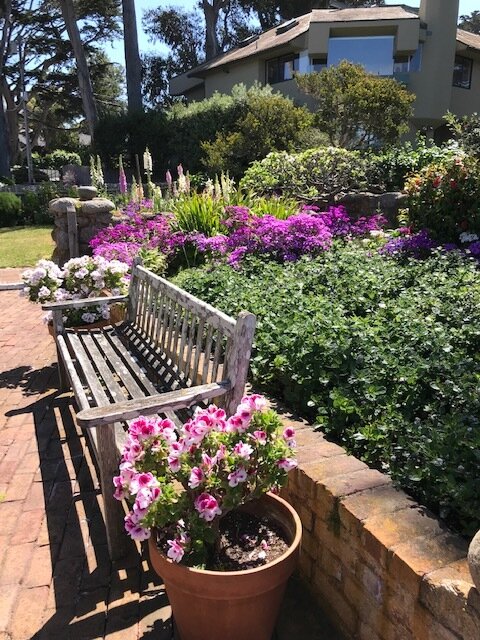
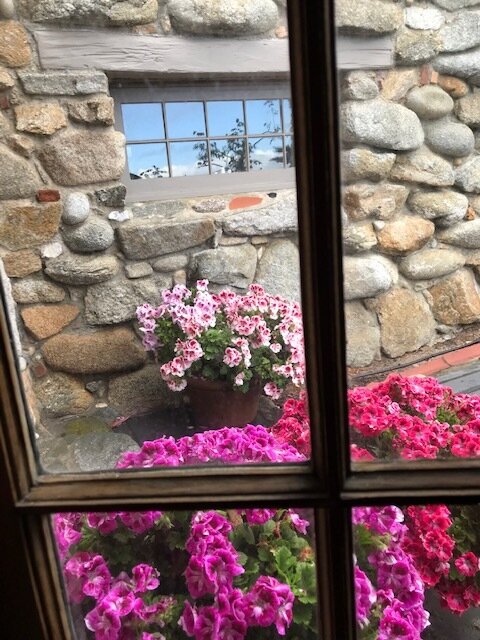
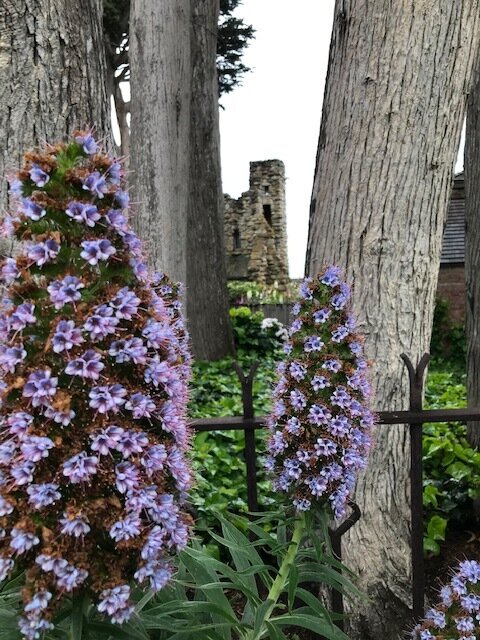
Photographs by Melinda Manlin
Quotes from Jeffers’ poems “It is a pity the shock waves,” “To the Rock That Will Be a Cornerstone of the House,” “Tor House,” “Carmel Point,” and “Hungerfield,” and from Sherod Santos, On the Memory of Stone: A Tor House Legacy. Foothills Publishing: Bath, New York. 1996.

